
About Us
Bright FACES was established to offer a multidisciplinary intervention that strives for excellence in service delivery. Our motto is for life and wellbeing. We endeavour to provide professional therapies that support families and individuals throughout their lifespan, while promoting a greater quality of life.
All programmes and techniques are based on latest research and empirical evidence that support ‘Best Practice’ interventions. Our programmes are distinct, as a multi-theoretical basis (i.e. educational, developmental and behavioural constructs) is implemented to target the core features of Autism Spectrum Disorder ASD. The programmes are delivered on an individual or small group basis (maximum of three children to one trained adult) depending on client needs.
Bright FACES is dedicated to work in partnership with families and their supportive networks by sharing their skills and expertise. The driving principle behind Bright FACES is to assist those on the Autism Spectrum to have access to individual and group programmes that will teach them to become independent, live confidently, be active members of their local community, and society in general. At Bright FACES, we believe that all people have a right to feel proud and confident in whom they are and live a dignified life.
Meet the Team
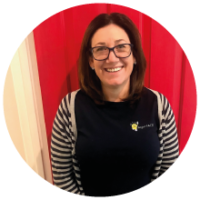
Michelle Jimeno
Director/Principal Psychologist
Read Michelle's Bio
Qualification(s):
BSci(Psych), PGDip (Psych), MPsych (Ed & Dev)
Membership(s):
AHPRA (endorsed supervisor; Ed & Dev Psych) MAPS, MCEDP
Number of years in the industry (or similar):
Practicing Psychologist since 2004, Behavioural Therapist/Teacher’s Aide 1998-2003, Youth worker 1993-1997 (Studied Psychology from 1998-2008)
How would you describe what you do: As an Educational & Developmental Psychologist, I help people understand their intellectual and social-emotional abilities to get the most out of their learning across all aspects of their lifespan. Our centre mainly works with paediatrics and their families but on most occasions, we continue to see our clients even into their adult years, should they ever need to call upon us. The role of an Ed & Dev Psychologist is very systemic in their approach, as we don’t just deal with the individual in question; we also see how to support other contributing influences (e.g. parents, siblings, educational setting, workplace, etc.). Over the last few years, we have taken on psychology students on placement while they complete their Master’s level degree. I also supervise qualified psychologists wanting endorsement specialisation as an Ed & Dev Psychologist.
What do you like about what you do: Seriously, apart from paperwork, what’s not to like? I adore being an Ed & Dev Psychologist and the whole gamut this role brings; from assessments to messy play. I love the process of investigating why a child behaves a certain way or is having difficulty with their learning and being able to explain that to parents and teachers. Using research knowledge to turn the difficult into practical solutions. Seeing the little steps of progress and celebrating milestones with parents and teachers. I’m in awe of how members of my team immediately come together to help a distressed child (especially behind the scenes), to see how best that child can be supported from their disciplinary perspectives. It’s pretty amazing how they analyse as they witness, a true strength of our clinic.
Tell us a story about how you got into the field: In all honesty, I loathed high school and started my career with the Public Service after finishing Year 12. Soon after, I successfully applied for a Youth Worker position, which I did while we were raising our two young sons at the time. Our youngest son was a handful and an opportunity came where I could take a year off work to look after our boys. Staying at home dealing with a screaming child all day long was hard work. As we went from one doctor’s appointment to another, the question of Autism arose. It was very unknown back then (1997), especially within the public forum, myself included.
I am a proactive person so I wanted to find out more how to help my son and manage his behaviours. I applied for Uni, where at every opportunity my essays, research and theses were about Autism Spectrum Disorders (ASD). I was intrigued by this condition as a mother and as an early professional. Still while studying, I held positions with Department of Education as a teacher’s aide and as a Departmental Psychologist. I’ve also held a position at a private catholic all girls’ school where I was the sole psychologist for over 800 students.
I started my multidisciplinary practice, Bright FACES, in the western suburbs because there was a lack of services that specialised in ASD. I remember having to travel 45mins+ to therapy and doctor’s appointments and there were no Medicare rebates or funding support like DSS. It is good to see how the field of Autism and the government are evolving, by providing more support to the individual across the lifespan and not just targeting early intervention.
Common misconception about what you do: Without a doubt, when you tell people you’re a psychologist many reply, “So you can read my mind”. Unfortunately, we didn’t learn psychic abilities at Uni.
Any other information you would like us to know: Our two boys have grown up to be fine young men now both in their 20’s. Our eldest son is a teacher at a specialist school, which he loves, so I guess working with special needs has rubbed off. Our youngest son is no longer the handful he once was. He has developed to be quite an independent and happy young man, who constantly surprises us, and others who know him. He has always been my will to learn and share what I learn with others.
Finally, I’d like to say that working with families effected by ASD is indeed challenging but knowing that you’re contributing to the progress and are improving someone’s quality of life is far more rewarding.
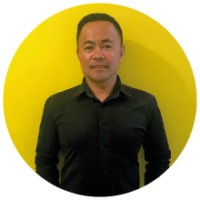
Rolando Jimeno
Business Manager/ Sport and Recreation Officer
Read Rolando's Bio
Qualification(s):
Certificate III & IV in Personal Training
Bachelor’s Degree in Sport & Recreation Management (2011)
Number of years in the industry:
11 Years Bright FACES
23 Years Business Management
How would you describe what you do?
I manage the business operations at Bright FACES, which includes overseeing budgets, leading our admin team, managing clients’ NDIS accounts, and liaising with multiple NDIS plan managers to ensure services are delivered and billed smoothly. I also build and maintain connections with local councils and small businesses to support collaboration within our community. In addition, I run weekly sports and recreation groups for children, adolescents, and families—programs that focus on movement, social engagement, and building confidence.
What do you like about what you do?
I love the variety in my role—no two days are the same. I might start with strategy meetings or funding admin in the morning, and by the afternoon, I’m leading a movement session with our groups. But the most rewarding part is seeing our clients grow—not just physically, but in confidence and connection with others. Being part of that journey is what makes this work so meaningful.
Tell us a story about how you got into the field:
Seventeen years ago, I was working in a stressful middle management role in the oil and gas industry. I was burnt out and knew I needed a change—something that aligned with the kind of life I wanted to live. In 2008, I took the leap and left that world behind. I enrolled in Cert III & IV in Personal Training, which led me to a Sport & Recreation Management degree. During this time, I worked at Melton Waves and Genesis, co-founded Melton Personal Training, and eventually opened my own gym, CrossFit Melton. In 2014, I started working with Bright FACES one day a week—now I’m here full time, combining my passion for business and wellbeing in a role I truly love.
Common misconception about what you do:
People often assume I’m either “just in the office” or “just running sports groups”—but the truth is, my role bridges both. There’s a lot of behind-the-scenes work that goes into keeping the business running smoothly, while also having a direct, meaningful impact through the recreational programs we deliver. It’s a unique balance that not many people realise exists.
Any other information you would like us to know:
Outside of work, I love cycling around Mt Macedon and Hepburn, I’m a passionate supporter of the Hawthorn Hawks (just visit my office for proof!), and I’m always planning my next travel escape. I also cherish spending quality time with my family, catching up with friends, and making memories with my granddaughter. And of course, my chocolate Labrador, Busta Brown, is never far from my side—he’s a big part of my world and always keeps life grounded and full of joy.

Busta Brown
Therapy Dog
Read Busta's Bio
Hey there! I’m Buster, Buster Brown, a chocolate Labrador, trained therapy pooch, with a nose for treats and a knack for taking myself on walks (yep, you heard that right!). If you ever see me holding my lead in my mouth, that means it is walk time humans!, “Let’s go!”
I’m a professional snack enthusiast—if it’s food, I’m interested. If it’s my favourite treat, I’ll be your best friend forever (really, everything is my favourite) treat.
When I’m not busy leading my own walks or hanging with my humans, you’ll find me offering comfort, and lending a paw in therapy sessions with all of my friends. I’m here to help you feel at ease, whether it’s for a relaxing cuddle or just being a friendly, furry companion during your sessions.
So, if you ever need a therapy buddy to brighten your day, a little extra comfort during your session, or a furry friend to hang out with while you work through your goals, I’m your guy! Just speak to the admin ladies and they will try and sort it out with my managers 😉.
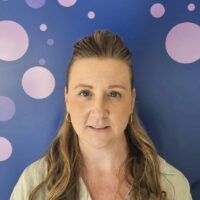
Deborah
Administration/Medical Receptionist
Read Deborah's Bio
How would you describe what you do: I welcome all of our clients to the clinic and assist them with their appointment bookings, along with providing information to our clients on the social groups that we offer. I provide assistance to ensure your appointments are handled with great ease for you and your family. I aim to make you feel welcome and comfortable with every visit into the clinic.
Tell us a story about how you got into the field : My background is working in registered training organisations providing administrative support to adult learners to achieve their goals of completing their qualifications. I enjoy working with those in our community and wanted to extend my passion for helping others to assisting children and their families in achieving their goals. I came across Bright FACES and the position was everything that I wanted.
What do you like about what you do: The team at Bright FACES are an amazing and supportive group of people, they make me laugh every day. I enjoy being able to put a smile on other’s faces and the interaction with our clients and their families allows me to do this every day, whether it is face to face or over the phone. It is rewarding watching others achieve their goals. As a parent, I know how fulfilling this is watching children achieving something new, watching their faces beam with pure pride and joy.
Common misconception about what you do: You can’t be that busy answering a phone. Every phone call is different so you never know what you are going to answer when the phone rings.
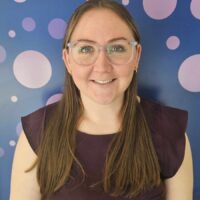
Ashlea
Team Assistant
Read Ashlea's Bio
How would you describe what you do: I provide administration support to the whole team and complete projects/ tasks to benefit the company and staff under the direction of our Director. I am the second contact for Reception and I manage all bookings, including’s assessments in Michelle’s diary.
Tell us a story about how you got into the field: I have previously worked with Osteopaths prior to having children of my own. When returning to work, I started in a GP clinic but soon realised I wanted to stay within the Allied Health sector. An opportunity came up at a paediatric clinic- this caught my attention, so I applied and got the job. After that, I wanted to move onto a different clinic that would work in with my personal life better and this is when I applied for a reception role with Bright FACES.
What do you like about what you do: I love being able to help families and brighten someone’s day. As a parent, I can understand how tough some situations can be and just having someone to understand and help you or your child, with no judgement, is such a relief. I love seeing the progress the children that come through our doors, make.
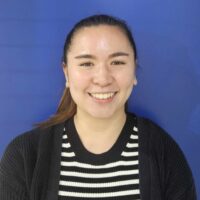
Dr. Misha
Educational and Developmental Psychologist
Read Dr. Misha's Bio
Qualification(s):
Bachelor of Arts, Bachelor of Psychological Science (honours), Master of Educational and Developmental Psychology, Doctor of Philosophy
Membership(s):
Australian Health Practitioner Regulation Agency (AHPRA), Australian Psychological Society (APS)
Number of years in the industry (or similar):
5 years
How would you describe what you do? I get the privilege of working closely with children, young people, and their families who may be going through a range of life stressors that may be impacting on their overall mental health, whether it be anxiety, life transitions, as well as various other social and emotional stressors. I predominantly have experience in working alongside neurodivergent populations and place strong importance in employing a neurodiversity-affirming approach to therapy. I also have a particular interest in working with neurodivergent females, recognising that their lived experiences are often misunderstood and misrepresented, leading to unique challenges and stressors. I aim to create a safe space for my clients, helping them in identifying goals that are of importance to them. It is my hope that my clients walk away with a greater understanding and acceptance of themselves with an ultimate goal of positive mental health and wellbeing. It is important to me that my sessions are tailored based on individual need/ preference, but I have experience in drawing on a range of therapeutic approaches such as Cognitive Behaviour Therapy, Acceptance and Commitment Therapy, and Collaborative and Proactive Solutions.
Tell us a story about how you got into the field: I grew up in Malaysia and was heavily encouraged by my family to regularly dedicate time to volunteering. Growing up, I had the opportunity to meet people from all walks of life and very quickly learned that I enjoyed getting to work with and support children in recognising their strengths. I tried out lots of different disciplines during my time at university – everything from criminology, sociology, to media and communications but my heart always came back to psychology. I very quickly realised I wanted to be a paediatric psychologist and am so lucky to be living that dream today!
What do you like about what you do? Having been in this field for just over 5 years now has convinced me that I have the best job ever! I recognise the privilege that I have and am so lucky to get to work closely with families, supporting them through their highs and lows. I have supported my clients through some big life transitions and watching them grow, succeed, and achieve their goals is incredible.
Common misconception about what you do: Most definitely it would be that that I can read peoples minds! This is the most common response I get when people find out I am a psychologist. Also, that I am most likely over-analysing everything being said to me.
Any other information you would like us to know: Outside of work, I enjoy building Lego, getting lost in a good video game and also adore spending time with my fur baby, Piper.
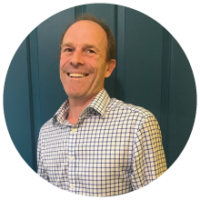
Sharik
Educational and Developmental Psychologist
Read Sharik's Bio
Updated biography coming soon…
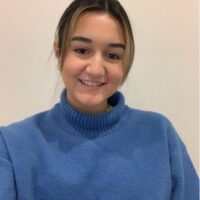
Adele
Provisional Psychologist
Read Adele's Bio
Qualification(s):
Bachelor of Psychological Science and Criminology, Bachelor of Psychological Science with Honours, Master of Professional Psychology.
Membership(s):
Australian Health and Practitioners Register (AHPRA) (Provisional Psychologist), Australian Psychological Society (APS)
Number of years in the industry (or similar):
6 years, including university studies since 2019 and within that I worked as a disability support worker for 3 years.
How would you describe what you do? I work closely with children and their families to understand and support their emotional, behavioural, and cognitive development and to support and advocate for their well-being. As part of this, I focus on understanding how individuals think, feel, and behave, and use these insights to tailor interventions, make informed recommendations, and develop effective strategies to support their needs. I help children with a range of challenges, such as anxiety, depression, learning difficulties, and behavioural challenges, using evidence-based therapeutic approaches. I also collaborate with parents, educators, and other professionals to ensure that children receive comprehensive support in all areas of their lives to create a positive, supportive environment.
Tell us a story about how you got into the field: I accidentally fell in love with psychology. I always knew I wanted to be in a helping profession I just was not sure where that would be. VCE psychology and legal studies quickly became my newfound passions in Year 11 and 12, so I changed my university preferences last minute from primary school teaching to study a double degree of psychology and criminology. I quickly realised at university that I loved psychology (even the statistics subjects!) and found it so interesting and applicable to every single person. From here I went on to continue the rest of my studies to with the aspiration to become a psychologist. Once I realised I wanted to work in the psychology world I started work as a disability support worker, and in this role I learnt so so much. It was such a fulfilling experience assisting individuals to achieve their goals no matter how big or small, and seeing the impact I could have on a person’s day, week or life is something that really cemented to me that I chose the right career path.
What do you like about what you do: Again, the impact I can have on a person’s day, week or life and supporting children and their families to achieve their goals and have a positive impact on their overall wellbeing is something that is extremely fulfilling. As with any career there are challenges and but what I love about psychology is how much you can learn and grow from these experiences, moulding you to be an even better clinician. I also love getting the privilege to be apart of an individual’s journey through life, and to be there to support them through the highs and the lows.
Common misconception about what you do: Whenever I tell people what I do the first response is always that we can read minds, and this defiantly is not apart of the coursework at uni. Another comment I always get is that people assuming that we are constantly observing and analysing all the people around us, which is also not true.
Any other information you would like us to know: Outside of psychology you can find me with my dog Penny, spending time outside (particularly the beach!), reading, or running, and I’m also a BIG North Melbourne AFL supporter!

Cedrick
Provisional Psychologist
Read Cedrick's Bio
Qualification(s):
BSc (Psych)/(Hons), MEd&DevPsych (currently completing)
Membership(s):
AHPRA (Provisional Psychologist), APS Student Member
Number of years in the industry (or similar):
Studied psychology since 2019, Therapy Assistant for 2 years, Provisional psychologist since 2024
How would you describe what you do: As a provisional psychologist, I am both a student and practicing being a clinician. Part of my work involves helping people understand how they think, how they learn, and how they feel. I also assist people to think of ways they can get through challenging times or to do tricky things. I have helped children learn to cope with their emotions, have helped students know how they learn best, and have helped adults become more mindful in their everyday life. All of my work is supervised by a registered psychologist to ensure I am providing the best care for my clients.
Tell us a story about how you got into the field: Starting university, I was pretty keen to become a doctor, so I took a lot of biology and health sciences courses. However, we were required to take an elective class, so I chose a psychology subject without much thought. In short, I absolutely loved it! Since then, I have never looked back and have become absolutely passionate about the psychology field. I couldn’t imagine where I would be now if I did not take that class! So far, most of my work has involved working with autistic children and their families.
What do you like about what you do: I really enjoy the variety of people I meet. Everyone has a story, and it is such a privilege to be invited to learn about an individual’s background and to be in a position to help them. I really like that I get to do different things and that I am always learning on the job! I also like the investigative nature involved, having to figure out why X may be influencing Y, or the fact that we get to see the people we work with thrive and grow, as well as help them navigate any challenging periods of life.
Common misconception about what you do: Some people think that working with a psychologist means you just “sit down on a couch and talk”. While that may definitely be something you do with a psychologist, we do so much more! For example, I ran a social group to help children learn about their emotions and we watched lots of videos on Inside Out, I have played UNO and Connect Four during an assessment, and I even did a volcano science experiment during a holiday program for developing language!
Any other information you would like us to know: I love to play video games and have been a Pokémon fan since I was a kid. I enjoy cooking, baking, and going on runs. I also love watching movies and spending time with family and friends!
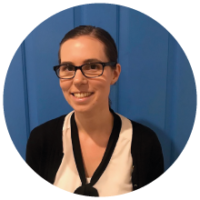
Amy
Psychologist
(Currently on Maternity Leave)
Read Amy's Bio
Qualification(s):
B.A. (Psych – Hons), Grad. Dip. Primary Teaching, M. Ed. Psych (currently undertaking)
Membership(s):
AHPRA (Provisional Psychologist), Victorian Institute of Teaching (Registered Teacher)
Number of years in the industry (or similar):
10 years, including years of study
How would you describe what you do: I get to know children and their families so that I can understand the challenges they are facing, and work with them to find strategies which enable the child and their family to flourish. I use a range of tools to help me understand more about how children think, feel, and behave, and use this to guide me in making recommendations, suggesting strategies for them to try, or delivering interventions.
Tell us a story about how you got into the field: While working as a primary school teacher, I realised that my passion was really working with the children who find school challenging or having difficulty learning at the same pace as their peers. I wanted to learn more about how to help these students to reach their goals and develop to their full potential.
What do you like about what you do: I am very fortunate to be placed at Bright FACES and have the opportunity to meet so many unique and special children and their families. It is a privilege to get to know them and to hear their challenges and successes, joys and frustrations, highs and lows, and to join with them in working to achieve their goals.
Common misconception about what you do: That I am a mind reader or analysing everyone that I meet.
Any other information you would like us to know: I love sewing, colouring in, and doing craft activities. I also enjoy baking cakes and bread.

Nathan
Occupational Therapist
Read Nathan's Bio
Qualification(s):
Bachelor of Arts (Major in Psychology and Criminology), Bachelor of Occupational Therapy
Membership(s):
Member of Australian Health Practitioners Register (AHPRA), Member of Occupational Therapy Australia
Number of years in the industry (or similar):
I have worked as an OT for about 6 years but have been working with children even longer!
How would you describe what you do: Occupational Therapists can assist with many areas of a child’s development. OTs can help children develop the skills that they need to participate fully in everyday activities at home, school, and in the community. They support a wide range of children with a wide range of needs such as developmental delay, sensory processing issues, and physical, emotional, or cognitive challenges. Through play-based therapy and individualised intervention, paediatric occupational therapists work to improve fine motor skills, sensory regulation, social interactions, and self-care abilities. OT sessions are fun and are all about focusing on how to improve certain skills that can assist children in other areas of their lives where they may need support.
Tell us a story about how you got into the field: I have spent lots of my time working with children in different settings. I used to work as a soccer coach, footy coach, a birthday party host, I even used to dress up in an inflatable teddy bear suit! I wanted to find a job where I could have fun, but also support children to learn about important skills that they may need. That’s where I came across Occupational Therapy. I love that you can learn and teach so many things in a way that children don’t feel like they are working. So, after I had completed previous studies, I decided to take a chance and studied to be an OT. I haven’t looked back since.
What do you like about what you do: I love how rewarding it feels to support a family through their children’s journey. Sometimes things can be challenging and that is perfectly fine, everyone has a different journey or story. What makes me love what I do, is being a small part of supporting each individual child and their support network around them. With time and hard work, seeing ‘little wins’ turn into bigger success is amazing to see and something worth celebrating!
Common misconception about what you do: That OTs are only good for helping out with handwriting! Or that OTs can fix everything. While OTs are great to help children develop their handwriting skills, or can assist in many areas of their lives, there is lots of work that goes into progress. Sometimes goals are met faster than others but sometimes improving skills or supporting needs can take longer than people might think and it is all about progress and the ‘little wins’ that get you there.
Any other information you would like us to know: I am extremely excited to get started and meet everyone that I will work with in the future. I am always ready to continue to develop and grow my own skills and love to learn and hear about people’s different experiences. Make sure you come to your OT session ready to have fun and be ready to learn!
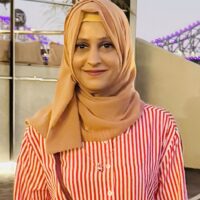
Bushra
Occupational Therapist
Read Bushra's Bio
Qualification(s): Bachelor in Occupational Therapy
Membership(s): APHRA
Number of years in the industry (or similar): 6+ years
How would you describe what you do? I bring acceptance, happiness and positivity within the lives of families I work with.
Tell us a story about how you got into the field: This happened almost ten years ago when I was uncertain about my future, searching for a purpose that would define me and give me a reason to strive for success. After completing two years at university, I began to question the true meaning of occupational therapy. To gain a clearer understanding, I reached out to various organisations, hoping to immerse myself in the field. Through these efforts, I had the opportunity to complete two internships, which proved to be invaluable experiences. They provided me with hands-on learning and a deeper appreciation for the impact of occupational therapy. It was during this time that I truly fell in love with the profession. I ultimately decided to work with children because I realised the profound influence early intervention can have on their development and overall well-being. Witnessing how therapy could empower children to overcome challenges, gain independence, and thrive in their daily lives inspired me. Their resilience, creativity, and unique ways of engaging with the world made every session meaningful and rewarding. From that moment on, I knew that paediatric occupational therapy was my true calling.
What do you like about what you do: What I love most about being a pediatric occupational therapist is the opportunity to make a meaningful difference in children’s lives. Seeing my clients grow, gain confidence, and achieve their goals no matter how big or small incredibly is rewarding. The joy on their faces when they accomplish something they’ve worked so hard on is priceless. to see my clients achieving their goals and the smile they have when they have a successful. Every day brings new challenges and opportunities to support children in becoming more independent and engaged in their daily lives, which makes my work both fulfilling and inspiring.
Common misconception about what you do: I always use to hear about people saying occupational therapy is just like physical therapy, or that being an OT means you are a massage therapist. If someone had asked me about my profession, I used to tell them I am an OT and they misunderstood it by thinking that I worked in an operation theatre. 😑.
Any other information you would like us to know: I am a proud Paediatric Occupational Therapist and an ASI practitioner who is striving to learn and grow as an occupational therapist in Australia.

Charmaine
Allied Health Assistant
Read Charmaine's Bio
Qualification(s):
Diploma of Health Sciences
Membership(s):
Occupational Therapy Australia
Number of years in the industry (or similar):
2 years, while short I’m loving every second of it
How would you describe what you do? I help children on the autism spectrum achieve their goals no matter how big or small. Through play, skill-building activities, and personalized support, I assist in fostering independence and confidence in daily tasks.
Tell us a story about how you got into the field: I stumbled across Occupational Therapy a few years after high school. I needed to do the Diploma of Health Sciences first and I loved learning about all things health, but I had the OT course as my goal, which I achieved! In conjunction with my degree, I wanted to gain some experience, so I now have some experience as an allied health assistant.
What do you like about what you do: The most rewarding part of my job is seeing the children grow in confidence and develop new skills. Whether it’s helping a child learn to regulate their emotions, go to the toilet, or eat a meal on their own, every little step forward is a big achievement. Seeing the joy on their faces when they accomplish something they’ve worked hard on makes it all worth it.
Common misconception about what you do: A common misconception about being an Allied Health Assistant is that we simply “shadow” therapists or do basic admin work. In reality, we play a hands-on role in delivering therapy plans, working directly with clients to support their progress. We help implement interventions, track progress, and adapt activities to suit each individual’s needs, making a real impact in their daily lives.
Any other information you would like us to know: Outside of being a university student and working, I love reading, journalling, cafe hopping, colouring books, and spending time with my loved ones.


